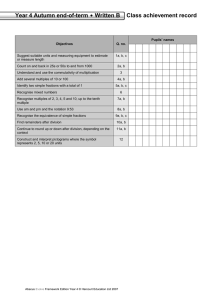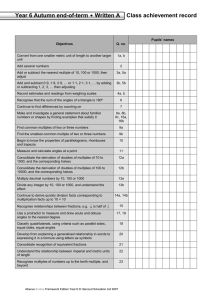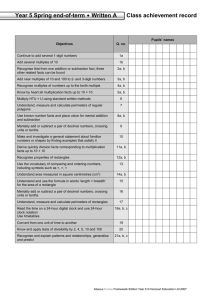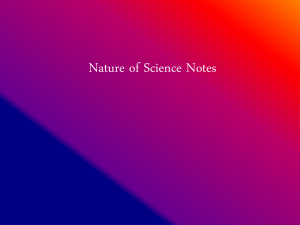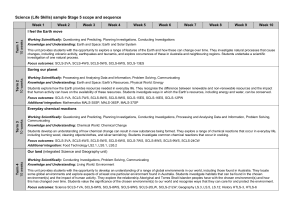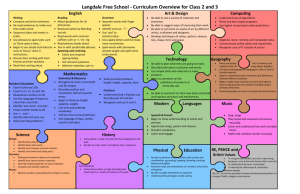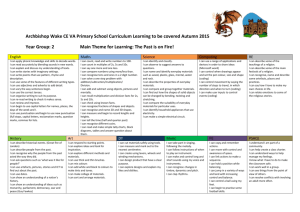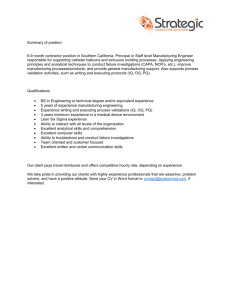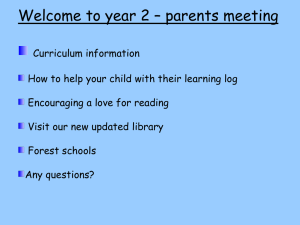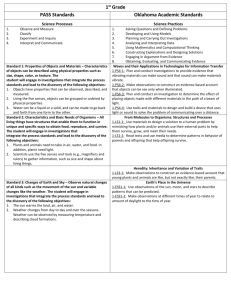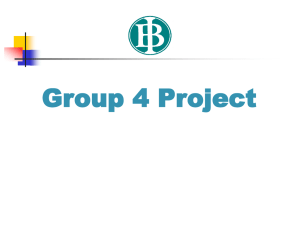Dolphin Class Curriculum Overview (Year 5 & 6)
advertisement
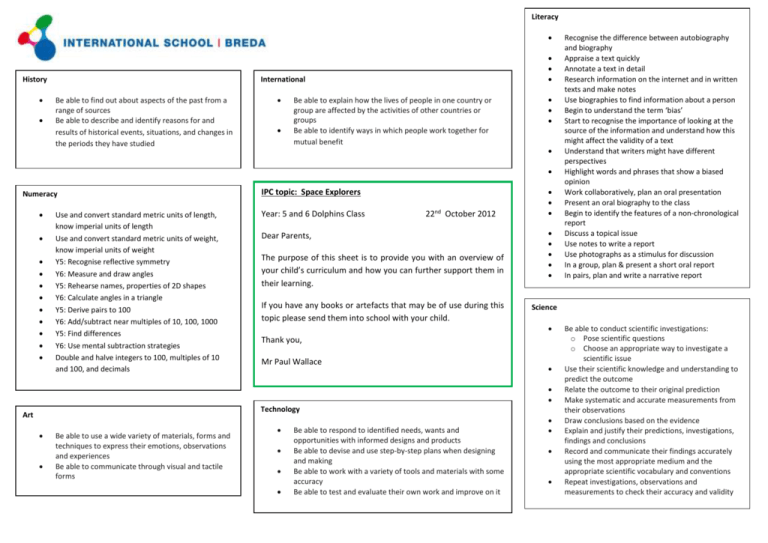
Literacy History International Be able to find out about aspects of the past from a range of sources Be able to describe and identify reasons for and results of historical events, situations, and changes in the periods they have studied Be able to explain how the lives of people in one country or group are affected by the activities of other countries or groups Be able to identify ways in which people work together for mutual benefit Numeracy IPC topic: Space Explorers Year: 5 and 6 Dolphins Class Use and convert standard metric units of length, know imperial units of length Use and convert standard metric units of weight, know imperial units of weight Y5: Recognise reflective symmetry Y6: Measure and draw angles Y5: Rehearse names, properties of 2D shapes Y6: Calculate angles in a triangle Y5: Derive pairs to 100 Y6: Add/subtract near multiples of 10, 100, 1000 Y5: Find differences Y6: Use mental subtraction strategies Double and halve integers to 100, multiples of 10 and 100, and decimals 22nd October 2012 Dear Parents, The purpose of this sheet is to provide you with an overview of your child’s curriculum and how you can further support them in their learning. If you have any books or artefacts that may be of use during this topic please send them into school with your child. Science Thank you, Mr Paul Wallace Technology Art Be able to use a wide variety of materials, forms and techniques to express their emotions, observations and experiences Be able to communicate through visual and tactile forms Be able to respond to identified needs, wants and opportunities with informed designs and products Be able to devise and use step-by-step plans when designing and making Be able to work with a variety of tools and materials with some accuracy Be able to test and evaluate their own work and improve on it Recognise the difference between autobiography and biography Appraise a text quickly Annotate a text in detail Research information on the internet and in written texts and make notes Use biographies to find information about a person Begin to understand the term ‘bias’ Start to recognise the importance of looking at the source of the information and understand how this might affect the validity of a text Understand that writers might have different perspectives Highlight words and phrases that show a biased opinion Work collaboratively, plan an oral presentation Present an oral biography to the class Begin to identify the features of a non-chronological report Discuss a topical issue Use notes to write a report Use photographs as a stimulus for discussion In a group, plan & present a short oral report In pairs, plan and write a narrative report Be able to conduct scientific investigations: o Pose scientific questions o Choose an appropriate way to investigate a scientific issue Use their scientific knowledge and understanding to predict the outcome Relate the outcome to their original prediction Make systematic and accurate measurements from their observations Draw conclusions based on the evidence Explain and justify their predictions, investigations, findings and conclusions Record and communicate their findings accurately using the most appropriate medium and the appropriate scientific vocabulary and conventions Repeat investigations, observations and measurements to check their accuracy and validity
